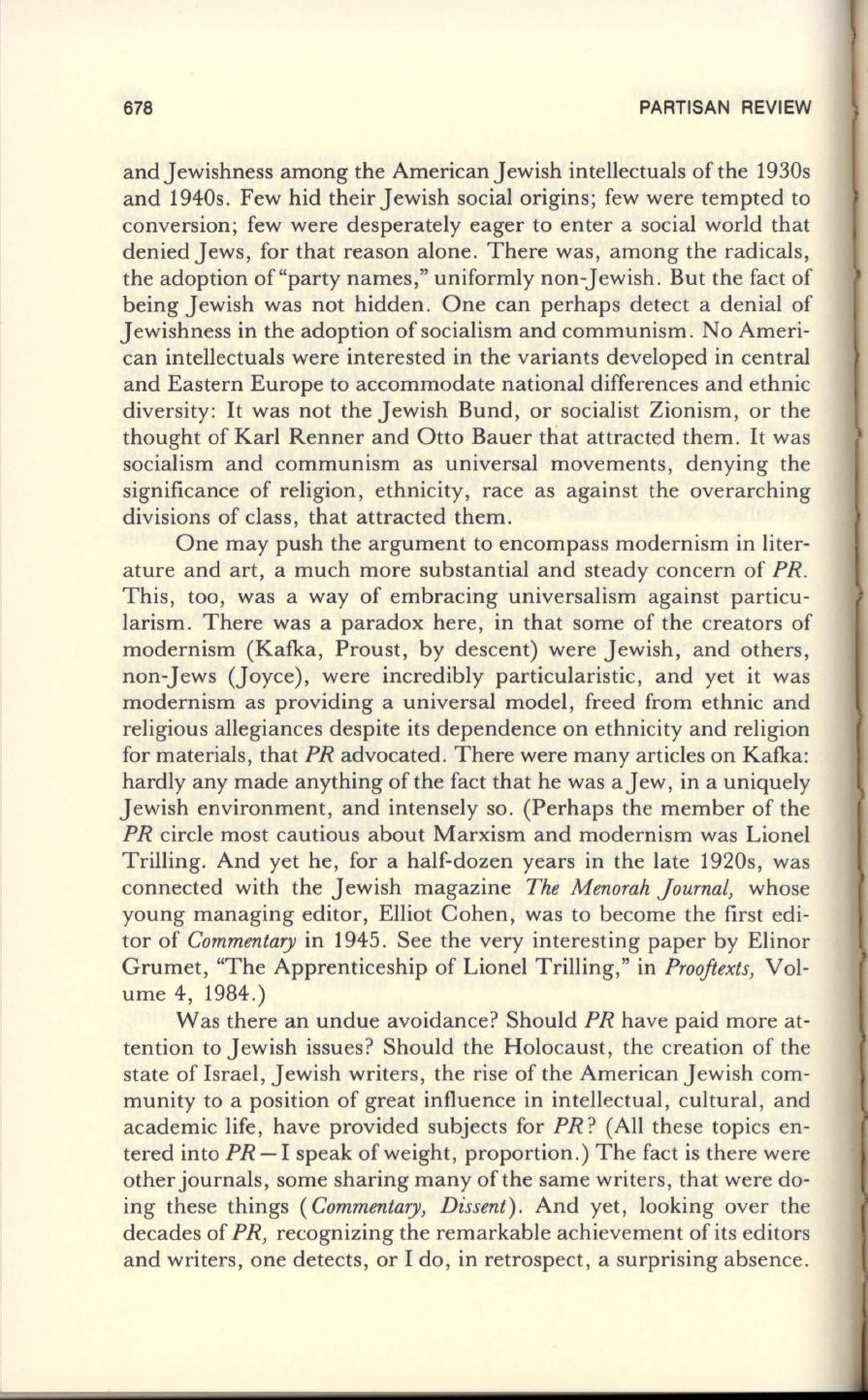
678
PARTISAN REVIEW
and Jewishness among the American Jewish intellectuals of the 1930s
and 1940s. Few hid their Jewish social origins; few were tempted to
conversion; few were desperately eager to enter a social world that
denied Jews, for that reason alone. There was, among the radicals,
the adoption of"party names," uniformly non-Jewish. But the fact of
being Jewish was not hidden. One can perhaps detect a denial of
J
ewishness in the adoption of socialism and communism. No Ameri–
can intellectuals were interested in the variants developed in central
and Eastern Europe to accommodate national differences and ethnic
diversity: It was not the Jewish Bund, or socialist Zionism, or the
thought of Karl Renner and Otto Bauer that attracted them. It was
socialism and communism as universal movements, denying the
significance of religion, ethnicity, race as against the overarching
divisions of class, that attracted them.
One may push the argument to encompass modernism in liter–
ature and art, a much more substantial and steady concern of
PR.
This, too, was a way of embracing universalism against particu–
larism. There was a paradox here, in that some of the creators of
modernism (Kafka, Proust, by descent) were Jewish, and others,
non-Jews (Joyce), were incredibly particularistic, and yet it was
modernism as providing a universal model, freed from ethnic and
religious allegiances despite its dependence on ethnicity and religion
for materials, that
PR
advocated. There were many articles on Kafka:
hardly any made anything of the fact that he was aJew, in a uniquely
Jewish environment, and intensely so. (Perhaps the member of the
PR
circle most cautious about Marxism and modernism was Lionel
Trilling. And yet he, for a half-dozen years in the late 1920s , was
connected with the Jewish magazine
The Menorah Journal,
whose
young managing editor, Elliot Cohen, was to become the first edi–
tor of
Commentary
in 1945 . See the very interesting paper by Elinor
Grumet, "The Apprenticeship of Lionel Trilling," in
Prooftexts,
Vol–
ume 4, 1984.)
Was there an undue avoidance? Should
PR
have paid more at–
tention to Jewish issues? Should the Holocaust, the creation of the
state of Israel, Jewish writers, the rise of the American Jewish com–
munity to a position of great influence in intellectual, cultural, and
academic life, have provided subjects for
PR?
(All these topics en–
tered into
PR-
I speak of weight, proportion .) The fact is there were
other journals, some sharing many of the same writers, that were do–
ing these things
(Commentary, Dissent) .
And yet, looking over the
decades of
PR,
recognizing the remarkable achievement of its editors
and writers, one detects, or I do, in retrospect, a surprising absence.


